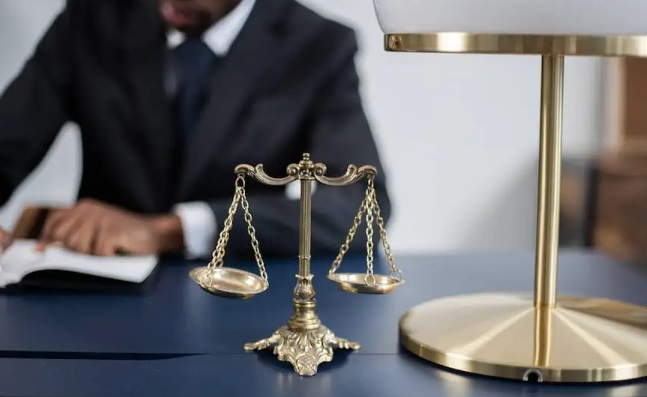Justice and Protection through a Domestic Violence Lawyer

Understanding the Role of a Domestic Violence Lawyer
A domestic violence lawyer plays an essential role in protecting the rights of victims who suffer from abuse within their homes or close relationships. Domestic violence is not limited to physical harm but also includes emotional, psychological, financial, and verbal abuse. Many individuals remain silent out of fear, stigma, or lack of awareness about their legal rights. A lawyer in this field provides a voice for those who cannot speak up and ensures that the law shields them from further harm. They act as both a legal advocate and a source of emotional support, guiding clients through an often overwhelming legal system.
These lawyers are trained to deal with sensitive situations where victims may feel trapped or powerless. Their expertise allows them to present cases with compassion while maintaining firm legal strategies. From filing restraining orders to representing victims in court, they ensure that justice is pursued. Without legal assistance, many victims would struggle to navigate the complexities of family law and criminal law intertwined in domestic abuse cases. Thus, the role of a Queens domestic violence Lawyer is not only professional but deeply humanitarian, making them vital allies in the fight against abuse.
Legal Protection and Restraining Orders
One of the most immediate actions a domestic violence lawyer takes is helping victims obtain protective or restraining orders. These legal documents are crucial because they set clear boundaries between the victim and the abuser, often restricting contact, communication, or physical proximity. For someone facing threats or intimidation, having such legal protection in place provides a sense of safety and reassurance. Lawyers assist in preparing the necessary evidence and documentation to convince the court of the urgency of the matter, ensuring the victim’s request is taken seriously.
Beyond obtaining the order, a domestic violence lawyer also educates the victim about how to enforce it. Many abusers attempt to violate restraining orders, and without proper legal guidance, victims may not know how to respond. A lawyer ensures that law enforcement acts promptly when violations occur. In addition, they work to strengthen the victim’s case by presenting patterns of abuse, witness statements, and medical records, building a comprehensive picture of why the restraining order is vital. This level of legal protection allows victims to begin rebuilding their lives without constant fear.
Representation in Criminal and Family Law Matters
Domestic violence cases often cross over between criminal and family law. A domestic violence lawyer is uniquely positioned to handle these overlapping areas. On the criminal side, they may represent victims as witnesses in prosecutions against the abuser, ensuring that justice is served and penalties are enforced. On the family law side, they assist with issues such as divorce, child custody, child support, and division of assets, all of which can become contentious when abuse is involved. Having one lawyer who understands the dynamics of both areas makes the legal journey smoother for the victim.
In family court, the lawyer’s role is crucial in protecting children from abusive environments. They advocate for custody arrangements that prioritize the safety and well-being of the children while ensuring the abusive partner does not use custody battles as a form of continued control. They also fight to secure financial support, which helps victims achieve independence after leaving the abusive situation. In criminal court, their presence ensures that the abuser is held accountable, preventing further harm. This dual representation makes domestic violence lawyers indispensable in achieving both justice and long-term stability for victims.
Emotional Support and Advocacy for Victims
While their primary function is legal, domestic violence lawyers also provide significant emotional support to their clients. Victims often feel isolated and fearful, and knowing that someone is fighting for them in court can restore hope and confidence. Lawyers who specialize in domestic violence understand the trauma their clients face and approach each case with empathy and patience. They not only represent but also empower their clients, helping them regain a sense of control over their lives.
Additionally, domestic violence lawyers frequently collaborate with social workers, counselors, and support organizations to create a comprehensive safety net for victims. This holistic approach ensures that survivors receive not only legal justice but also the emotional and practical resources needed to heal and move forward. By connecting victims to shelters, therapy, and financial aid programs, they go beyond the courtroom to make a lasting difference. The advocacy role of a domestic violence lawyer extends into public awareness as well, as many of them campaign for stronger laws and better protections for victims of abuse.
The Importance of Choosing the Right Domestic Violence Lawyer
Selecting the right domestic violence lawyer can have a profound impact on the outcome of a case. Victims need a lawyer who is not only skilled in the law but also compassionate, trustworthy, and committed to their well-being. A good lawyer takes the time to listen, understands the unique circumstances of each case, and develops strategies that prioritize safety and justice. Their reputation, experience, and ability to handle high-pressure situations matter greatly in securing positive results.
The right lawyer also helps victims feel empowered throughout the process rather than overwhelmed. They explain each legal step clearly, ensuring the client is informed and prepared. They build strong cases backed by evidence, legal precedents, and advocacy skills that convince courts of the severity of abuse. Most importantly, they become a reliable ally, someone victims can depend on during one of the most difficult times in their lives. By choosing wisely, victims increase their chances of breaking free from abusive cycles and creating a safer future for themselves and their families.






